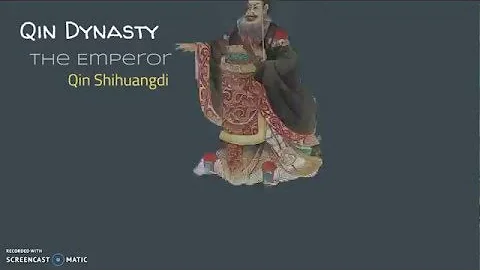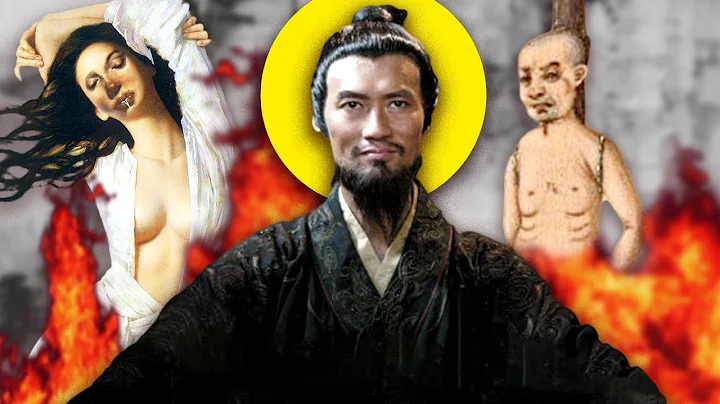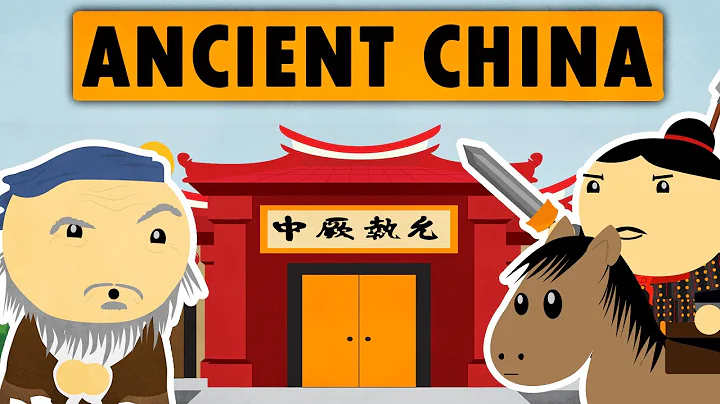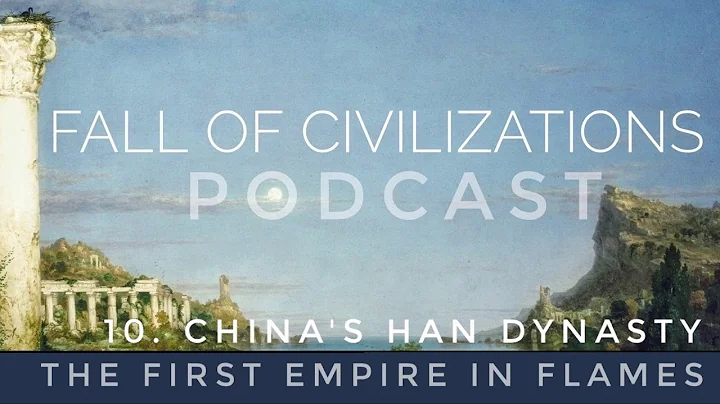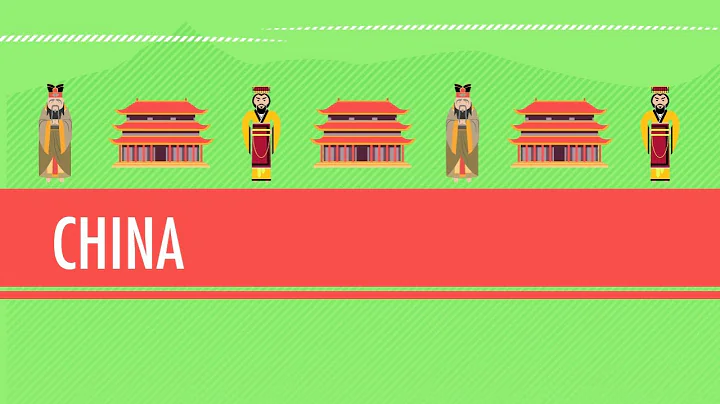The inheritance of the throne of the Song Dynasty is quite unusual in Chinese history. After the founding emperor, he was succeeded not by his descendants, but by his younger brother. This is extremely rare in this feudal dynasty where the death of father to son has become a common trend. Since ancient times, there have been two methods of inheritance of Chinese dynasties: father to son and brother to brother. Although the second method was more common in the pre-Qin era, it has basically withdrawn from the stage of history since the unification of Qin and Han Dynasties, at least it cannot become mainstream. However, the unified Song Dynasty adopted this approach. It is no wonder that later generations had various doubts about this matter, and the saying " the shadow of the candle and the sound of the ax " spread.

Zhuying ax sound, also called Ax sound Zhuying , refers to the midnight of Ren in October of the ninth year of Kaibao in the Song Dynasty (AD 976). Taizu Zhao Kuangyin was seriously ill and summoned King Jin Zhao Guangyi to discuss matters (other records say, It was Zhao Defang, the fourth son of Emperor Taizu, who was summoned to the palace to discuss his future affairs. However, King Jin of Jin did not summon him to the palace after he found out about it. During the banquet, someone saw Guangyi leaving the banquet under the candlelight from time to time, as if he was shying away. They also heard Taizu stabbing the ground with his axe, and loudly saying: "It's good to do it" (other records say "It's good to do it, it's good to do it"). ). Later Jin Dynasty King Zhao Guangyi succeeded to the throne and was known as Taizong in history.
According to this, some people believe that Zhao Guangyi murdered his brother Zhao Kuangyin and seized the throne. The evidence is that when Zhao Kuangyin died, his wife, Queen Song, ordered eunuch Wang Jien to summon Zhao Kuangyin's second son, Zhao Defang, into the palace. However, Wang Jien, who had been bribed by Zhao Guangyi, brought Zhao Guangyi into the palace. When Empress Song saw Zhao Guangyi coming, she was shocked and begged Guangyi: "The lives of my mother and son are all entrusted to the officials." Zhao Guangyi cried and replied: "We can protect our wealth together, don't worry." Yes, Queen Song's original plan was to make Zhao Defang the emperor, but she did not want Zhao Guangyi to take the advantage and had no choice but to make the choice.

What needs to be explained here is that Wang Jien was not actually a close confidant of Zhao Guangyi. In other words, the reason why he chose Zhao Guangyi was not to follow the order of Queen Song, but because of the general trend, because before Zhao Kuangyin's death, Zhao Guangyi had always regarded the emperor as the emperor. The identity of heir exists. At that time, Zhao Guangyi was the king of Jin and the governor of Kaifeng. The prince and the governor of Kaifeng were the standard configuration for an imperial heir during the and Five Dynasties. In political life, Zhao Guangyi also participated in many political affairs and was the de facto number two figure in the Song Dynasty.
In fact, Zhao Kuangyin made Zhao Guangyi's arrangement intentionally. During the Five Dynasties period, political power changed frequently, and most of them died in the second generation. His mother, Empress Dowager Du, once asked Zhao Kuangyin why he was able to obtain the throne. Zhao Kuangyin replied that it was the blessing of his ancestors. Empress Dowager Du said that was not true. It was only because Zhou Shizong's son was young that you were able to dominate the world. Therefore, she proposed that Zhao Kuangyin pass the throne to Zhao Guangyi, who would then pass the throne to Empress Dowager Du's third son Zhao Tingmei , and finally Zhao Tingmei would pass it back to Zhao Kuangyin's eldest son Zhao Dezhao . Only by being in charge of the country can the eldest monarch avoid the possibility of the young ruler being usurped by powerful ministers. , so that the Zhao family can be protected in the world. Zhao Kuangyin deeply believed in this, so there was a saying of " Golden Chamber Alliance ".

It is said that this "Golden Chamber Alliance" was decided by three people. Empress Dowager Du and Zhao Kuangyin made an oath in the witness of Prime Minister Zhao Pu. Zhao Kuangyin was passed on to Zhao Guangyi a hundred years later, then to Zhao Tingmei, and finally to Zhao Kuangyin's son. This oath was uttered by Zhao Pu many years later. We are not sure whether this oath really existed. However, the political process after the founding of the People's Republic of China in the Northern Song Dynasty undoubtedly followed this idea.
However, after the political situation in the Northern Song Dynasty stabilized, the form of succession of father to son began to be reconsidered. After all, the death of father and son is more conducive to the stability of the dynasty than the succession of elder brother to younger brother. As the prime minister of the empire, Zhao Pu has always opposed Zhao Guangyi's succession to the throne. After the situation gradually settled down, Zhao Kuangyin also accepted Zhao Pu's idea, gradually weakened Zhao Guangyi's power, and began to give his son a stage to show off.
However, Zhao Guangyi has been the emperor's heir for a long time, and it is not so easy to shake.Zhao Kuangyin once had the intention of moving the capital. When he inspected Luoyang, he was unwilling to return to Kaifeng. He wanted to move the capital of the empire to Luoyang first, and eventually to Chang'an. The most important thing here is strategic considerations, but it also means reducing Zhao Guangyi's influence in the empire. As a hometown that has been operating for a long time, Kaifeng is the most important foundation of Zhao Guangyi. If his circle of influence cannot be eliminated, Zhao Kuangyin cannot guarantee that his son will successfully inherit the throne a hundred years later.

Zhao Guangyi was also aware of this, so he instigated some people behind the scenes to oppose the relocation of the capital, especially those with vested interests. Facing the fierce opposition, Zhao Kuangyin was helpless. He told Zhao Guangyi that the scenic spots of Luoyang and Chang'an were more suitable for establishing the capital than Kaifeng. Zhao Guangyi replied: There is no danger in virtue. Zhao Kuangyin sighed after hearing this, weighed it and returned to Kaifeng.
What is certain is that although Zhao Kuangyin has the intention to depose Zhao Guangyi, Zhao Guangyi has full wings, and he cannot take too drastic actions for the sake of the stability of the empire. As for Xu Tuzhi, his time is actually running out.
So was Zhao Kuangyin harmed by Zhao Guangyi? As for whether Zhao Guangyi has this idea, maybe he does. After all, he can feel the change in his brother's attitude. But whether he has this ability is another matter. As the founding king of the country, Zhao Kuangyin had very tight control over military power. In this regard, Zhao Guangyi should not have much power. At most, he operates on political power. In front of Zhao Kuangyin, Zhao Guangyi had no ability to resist. On the day Zhao Kuangyin died, Wang Jien went to summon Zhao Guangyi. Zhao Guangyi's first reaction was to shirk and avoid the incident, lying that he wanted to discuss it with his family. At that time, Zhao Guangyi was about 34 or 5 years old, his son was only in his teens, his first wife was dead, and the new wife Zhao Kuangyin designated for him had not yet married. Who did he discuss with? It was nothing more than being overwhelmed by the sudden change, which showed that he felt sudden about his brother's death. In other words, Zhao Kuangyin's death should have nothing to do with him.

How did Zhao Kuangyin die? In addition to being killed by Zhao Guangyi, there are also reports of death from illness. In modern times, people have gradually come to believe that Zhao Kuangyin probably died of a genetic disease in the Zhao family. We can also get a glimpse of it in history books. Two or three years before Zhao Kuangyin's death, he, a military general, fell off his horse during a hunting activity. Although he got angry at the horse and beheaded it, he never rode a horse again since then. On his way back to Kaifeng from Luoyang, he made a special trip to Gong County to visit his father's mausoleum, crying that he would never have another chance. And Kaifeng is only a few dozen miles away, so why can't we come again? This is probably because he feels that his time is running out. Therefore, we can understand that his sigh in Luoyang was his helplessness at being unable to save his life. In the end, Zhao Kuangyin, who was only 50 years old, passed away shortly after returning to Kaifeng.
In general, although Zhao Kuangyin originally trained Zhao Guangyi as his successor, this was an arrangement based on the reality of the Five Dynasties period. But when the Northern Song Dynasty completely settled down, Zhao Kuangyin came up with the idea of succession after the father died, and took action to a certain extent. However, because Zhao Guangyi had already matured and his physical condition did not allow it, the position was finally passed to Zhao Guangyi helplessly.
As for what Empress Song did, it was not Zhao Kuangyin's idea. It was more likely that Empress Song wanted to maintain her power. After all, being a queen mother has more status than being an emperor's wife. That she chose 18-year-old Zhao Defang instead of 26-year-old Zhao Dezhao is also telling. As Zhao Kuangyin's stepmother, she was not as old as Zhao Dezhao. She chose Zhao Defang because she had a deep relationship with him, and because it was more conducive to her control than Zhao Dezhao.

Speaking of this, it is not difficult for us to understand Wang Jien's choice. Zhao Defang was young and had no foundation in the court. If he ascended the throne, there would be no guarantee that the world would be turbulent. Under such circumstances, it is not surprising that he chose Jin Wang Zhao Guangyi, who had been trained by Zhao Kuangyin for more than ten years.As for the popularity of the "Candle Shadow and Ax Sound" conspiracy theory, it is still due to Zhao Guangyi's own selfishness. He did not abide by the original agreement, but passed the throne to his son, which aroused criticism from the world. Since then, there has been a saying among the people that "the world will be established after the ancestors of art". This statement is deeply popular. Finally, in the early years of the Southern Song Dynasty, Zhao Gou of the Taizong family obeyed the public opinion on the premise of ensuring his own divorce. , and returned the throne to Xiaozong of the Taizu lineage, which was regarded as paying off the debt for the ancestors.




